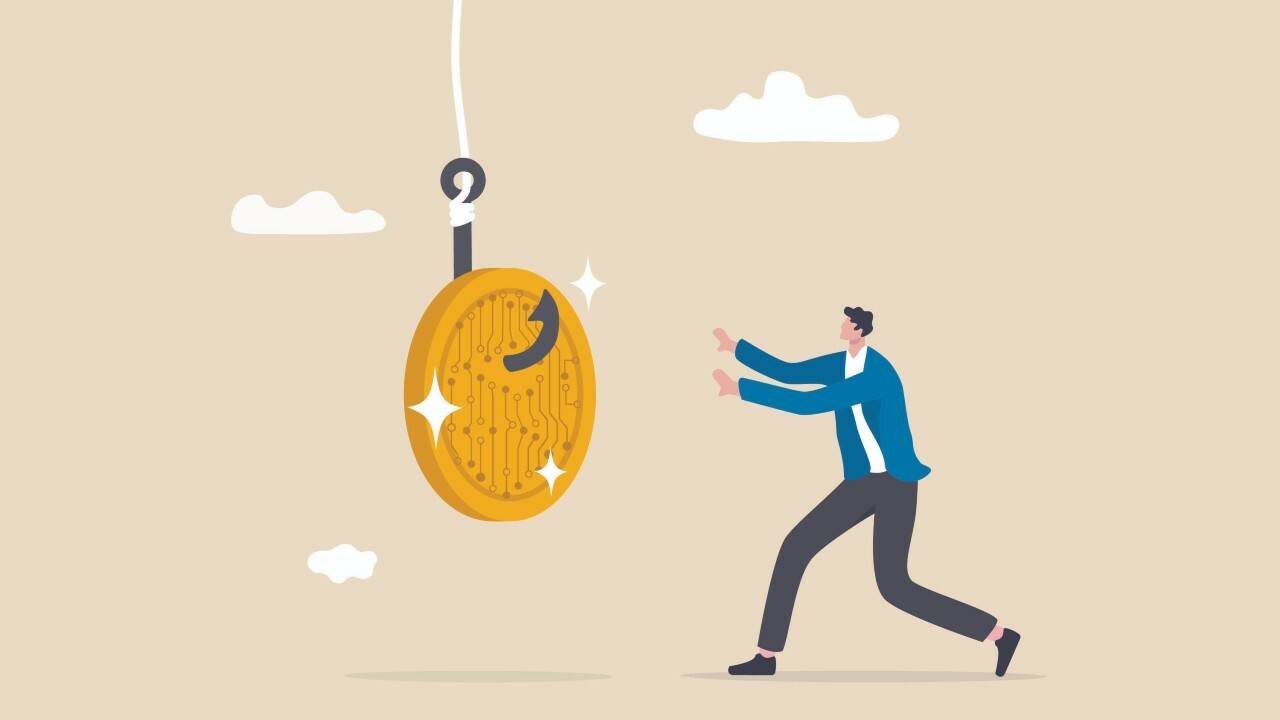Scammers are always seeking for new ways to steal your money, and the tremendous expansion of cryptocurrencies in recent years has opened up several doors for fraud. According to a report by blockchain data firm Chainalysis, thieves stole $14 billion in cryptocurrency in 2021, setting a new high. If you're interested in crypto, you should be aware of the dangers. Continue reading to learn more about frequent cryptocurrency scams, how to identify them, and how to prevent them.
A lot of cryptocurrency scams are complex and convincing. Here are some things you may do to safeguard yourself:
Protect your wallet: You'll need a wallet with private keys to invest in cryptocurrencies. If a company asks you to share your keys in exchange for an investment opportunity, it's almost always a hoax. Maintain the secrecy of your wallet keys.
Keep an eye on your wallet app: Send a little amount the first time you transfer money to confirm the integrity of a crypto wallet software.
If you notice strange behavior while updating your wallet app, stop the update and delete the program.
Only put your money into something you understand: If you're not sure how a cryptocurrency works, it's better to take a break and do some more study before deciding whether or not to invest.
Take your time: Scammers frequently use high-pressure techniques to persuade you to invest money right away, such as promising bonuses or discounts if you engage right away. Before you invest any money, take your time and do your homework.
Be aware of advertisements on social media: Crypto fraudsters frequently utilize social media to promote their deceptive schemes.
To generate a sense of credibility, they may use unauthorized photographs of celebrities or high-profile entrepreneurs, or they may promise prizes or free money. When you see crypto chances touted on social media, maintain a healthy skepticism.
Ignore cold calls: It's almost always a fraud if someone reaches you out of the blue to sell you a cryptocurrency investment opportunity.
Never give your personal information or send money to someone who approaches you in this manner.
Only download programs from official platforms: Although phony apps can get up in the Google Play Store or Apple App Store, downloading apps from these platforms is safer than downloading apps from other sources.
Do your homework: the most well-known cryptocurrencies are not rip-offs.
However, if you're unfamiliar with a cryptocurrency, do some study on it. See if there's a whitepaper you can read, learn who controls it and how it works, and check for credible reviews and testimonials.
To avoid being a victim of a scam, look for an up-to-date and reliable false cryptocurrency list.
Is it too good to be true: Scams are likely to offer assured profits or promise to make you wealthy overnight.
If anything appears to be too good to be true, proceed with caution.
Finally, never invest money you can't afford to lose, as with any investment opportunity. Even if you aren't being conned, Bitcoin is a volatile and speculative asset, so you must be aware of the hazards.
FOLLOW ME ON TWITTER: CAW KNIGHT




No comments yet
Be the first to share your thoughts!